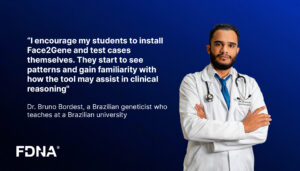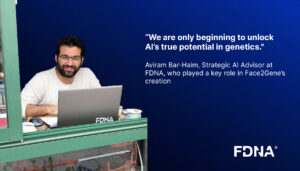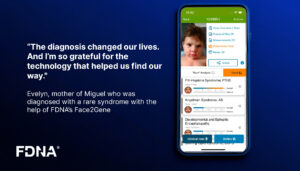December 21, 2019
“FDNA, a Boston-based company that developed Face2Gene, a smartphone app that can diagnose people with rare genetic disorders using DeepGestalt. DeepGestalt uses novel facial analysis to study photographs of faces and help doctors narrow down the possibilities. While some genetic disorders are easy to diagnose based on facial features, with over 7,000 distinct rare diseases affecting some 350 million people globally, according to the World Health Organization.”
The article explores how FDNA leverages artificial intelligence to combat rare genetic diseases, marking a significant advancement in the medical field. FDNA employs sophisticated facial recognition technology to detect rare genetic disorders, thereby enabling swift and accurate diagnoses. This innovative approach improves the chances of early intervention and effective treatment plans, ultimately reducing the prevalence and impact of these diseases. By making rare genetic disease detection more accessible and precise, FDNA’s AI-driven solutions demonstrate the profound potential of integrating advanced technology into healthcare.


